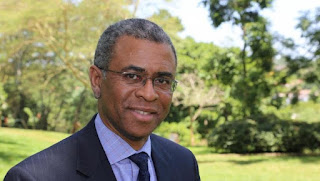John Bolton Is Wrong About the UN: And Bret Stephens Is Wrong About John Bolton

By Felix Dodds and Michael Strauss Monday the 9th of April John Bolton will take up his post as National Security Advisor. As this carnival roller coaster ride that is the Trump Administration has veered further and further off the rails, those few ‘moderate’ Republican backers who haven’t completely abandoned him have felt more and more hard pressed to figure out strategies with which to defend his chaotic actions. Columnist Bret Stephens – whose own recent hiring by the New York Times was met with stunned acrimony by many loyal Times readers – pulled out a reliable right-wing trope to defend, or perhaps to distract from, Trump’s latest disaster in the making, the announcement that his third National Security Advisor would be John Bolton. He attacked the United Nations. [ “JohnBolton Is Right About the UN”; March 23, 2018 ]. In doing so, he presented a laundry list of accusations about the U.N.'s actions and responsibilities. Much of it – like most effective propaganda –...





